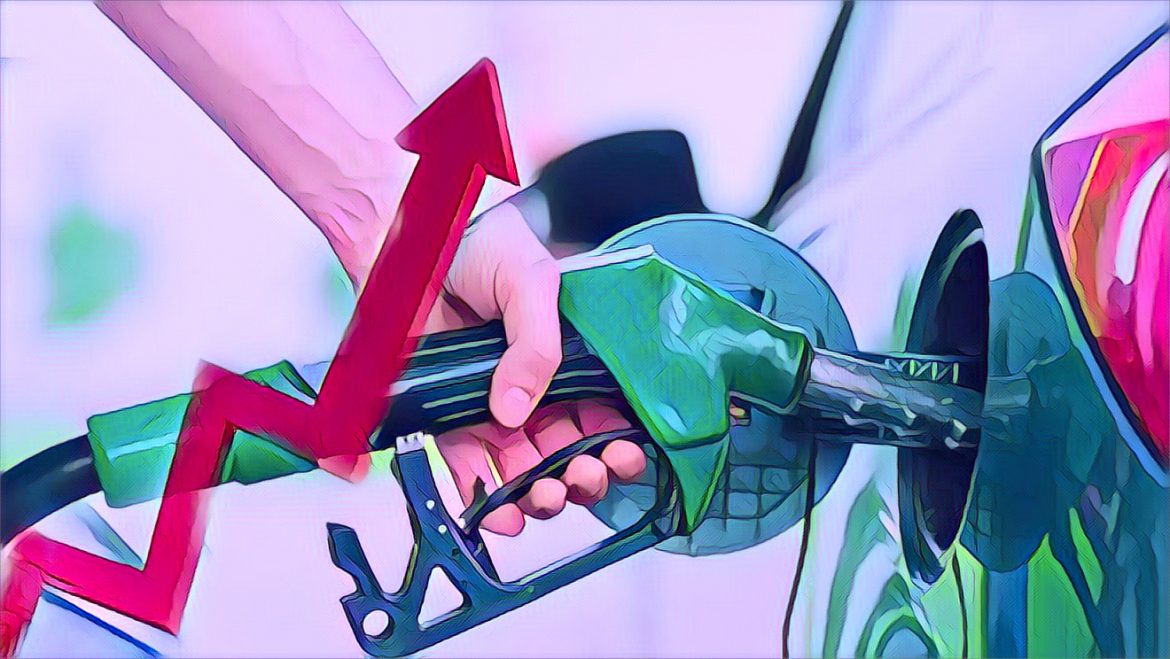The cost of fuel in Nigeria has significantly increased recently, with some independent oil marketers selling petrol for prices ranging from N900 to N1,000 per liter. This sudden surge has led to financial strain for many Nigerians and has raised widespread concerns across the country.
In contrast, Nigerian National Petroleum Company (NNPC) retail outlets are offering petrol at lower prices, ranging from N568 to N617 per liter. This price difference has resulted in long queues at NNPC stations as consumers seek to take advantage of the lower prices.
To address this issue, the Nigerian Midstream and Downstream Petroleum Regulatory Authority (NMDPRA) has threatened to shut down filling stations found selling petrol at inflated prices, emphasizing that it is not in the interest of Nigerians for marketers to profit excessively during these challenging economic times.
Independent oil marketers have defended their high prices by claiming they are forced to purchase petrol from private depot owners at rates as high as N850 per liter. However, the NMDPRA spokesman has disputed these claims, stating that the agency’s officials at the depots report different prices from those quoted by the marketers.
The NMDPRA has issued a warning to marketers engaged in price gouging, urging them to cease their unfair practices. This situation has raised questions about the effectiveness of regulatory measures and the government’s ability to control prices in a deregulated market. Reports indicate that independent marketers are taking advantage of the fuel crisis to increase their profits, seizing the opportunity to raise prices due to the tight fuel supply.
Sources within the industry have revealed that private depot owners have increased petrol prices due to reduced supply from the NNPC. This scarcity has allowed them to charge as much as N850 per liter when selling to independent marketers, who then sell to consumers at even higher prices, ranging from N850 to N1,000 per liter, particularly in remote areas.
The industry insider explained that the current situation has created a lucrative opportunity for marketers to increase their profits, as the limited supply and high demand have driven prices up. The fuel crisis has highlighted the challenges faced by the NNPC in maintaining a stable supply. Despite assurances of a return to normalcy, sources at the Lagos depot confirmed that the NNPC continues to ration fuel, causing scarcity and price hikes.
An industry insider indicated that the Federal Government is prioritizing the Federal Capital Territory (FCT), Abuja, to reduce lines at filling stations. “The queue is easing a little bit in Abuja. Almost 70 percent of the trucks are going to Abuja,” the depot operator disclosed.
Despite some marketers being accused of fuel hoarding, Adeyanju, a manager of a filling station in Ogun State, denied these claims. He argued that storing fuel for too long would lead to evaporation losses. “The way PMS is, if you put 33,000 liters in a tank, and hoard it for too long, by the time you want to haulage it, it may not be more than 31,000 or 32,000 liters. It will be evaporating. No tank operator will ever hoard fuel, not even at this time when people are making money,” Adeyanju explained.
The situation remains tense, with many stations across the country either closed or selling at prices far above the norm. In Osogbo, Osun State, petrol prices at independent marketers’ stations have reached between N900 and N1,000 per liter. Meanwhile, in Damaturu and surrounding areas, prices have similarly risen to N980 and N1,000 per liter.
In parts of Lagos and Ogun states, the scenario is no different, with petrol selling for as high as N950 to N1,000 per liter at independent stations. This price hike has led to an increase in transportation costs, with commercial bus operators in some areas raising their fares by as much as 50 percent due to the rising cost of fuel.
Amid the ongoing crisis, black market activities have surged in Kano State, where many filling stations remain closed despite having fuel in stock. This has created a thriving underground market, further complicating efforts to stabilize the situation.


